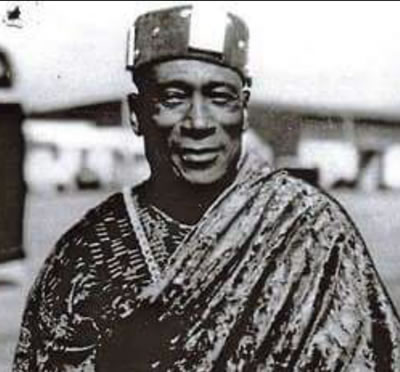Nii Kwabena Bonnie III Deserves Recognition In Ghana’s Independence History
- Home
- Nii Kwabena Bonnie III Deserves Recognition In Ghana’s Independence History

Nii Kwabena Bonnie III Deserves Recognition In Ghana’s Independence History

Speakers at a forum to discuss Ghana’s independence struggle have called for a rewrite of the country’s anti-colonial history to include the contributions of Nii Kwabena Bonnie III (Osu Alata Mantse and Oyokohene of Techiman) in the fight for independence.
They argued that the famous 1948 boycott of imported goods championed by Nii Bonnie and the subsequent anti-colonial campaigns lit the torch of nationalism among the people and sparked the desire for self-governance.
The speakers include Mr Kaakyire Frempong, Senior Lecturer, Political Science Department of the University of Ghana, Mr Kweku Darko Ankrah, historian, and Mr Ben Ephson, Managing Editor of the Dispatch newspaper.
The forum was organised by the Osu Heritage Foundation to highlight the contribution of Nii Bonnie in Ghana’s independence struggle.
Born in 1890, Nii Bonnie was not only a traditional leader, but a successful businessman.
In 1948, he led a nationwide boycott of all European goods sold in the Gold Coast at exorbitant prices, leading to high cost of living among the local people.
He formed the Anti-Inflation Campaign Committee in Accra in 1947 in response to the inflated retail prices on goods, and rallied other traditional leaders across the Gold Coast to lead the boycott in their respective territories.
In a letter to the United Africa Company (UAC), a subsidiary of the Anglo-Dutch multinational Unilever, Nii Bonnie issued an ultimatum to the European firms to reduce their prices by January 24, 1948 , cautioning that the local people would strike if they failed to do so.
The European firms ignored the ultimatum and refused to reduce their prices. As was the plan, the boycott began on 26 January 1948. The products boycotted by the Ghanaians included cotton prints, tinned meat, and flour biscuits.
It yielded fruit. On February 11, 1948, Nii Bonnie and other leaders attended a meeting with the colonial leaders and representatives of the merchants and they agreed to reduce the 75 per cent profit margin on imported textiles to 50 per cent.
Mr Frempong contended that the campaign to boycott European goods led to the 1948 riots and set the tone for the 1949-1951 campaign for independence.
“That incident was the catalyst for our quick run to independence. All along, the colonial people were saying the Gold Coasters were very calm. So the riot shocked the colonial administration out of proportion,” he said.
Mr Frempong said subsequently, the colonial administration set up a commission to investigate what led to the 1948 riots, adding that the Commission recommended that the Gold Coasters should be allowed to write their own constitution.
“It was on the basis of the report that we have the 1950 Constitution on which in 1951 we had the very first general election, and even there, Nii Bonnie was a member of the Legislative Assembly elected in 1951,” he said.
Mr Ankrah said Ghana’s political history and the journey towards independence would be incomplete without the recognition of Nii Bonnie as the initiator of the mass action for self-governance.
He said a critical analysis of the autobiography of Nii Bonnie and existing works detailing the activities that led to independence showed that Nii Bonnie was instrumental in uniting the people to stand against colonial rule.
“In Ghana, we cannot mention any event that caused our fast move to independence without mentioning Nii Kwabena Bonnie and the boycott. The boycott gave the people the momentum to campaign towards self-rule.
“…Nii Bonnie deserves to be on the cedi note…” he said.
Mr Ephson expressed worry about the neglect of Nii Bonnie in Ghana’s political history, saying: “You can delay the truth but you cannot hide the truth.”
Nii Nortey Owuo IV, the Osu Mantse, described Nii Bonnie as an astute statesman, upright traditional leader, and a visionary businessman.
He said the people of Osu would forever be proud of Nii Bonnie’s exploits and called for the raising of a monument in his honour for his contribution towards the country’s emancipation.
Source: GNA
- Share
Classic Ghana
Classic Ghana brings you into a fun world of arts, entertainment, fashion, beauty, photography, culture and all things in between. Let’s explore these together!







